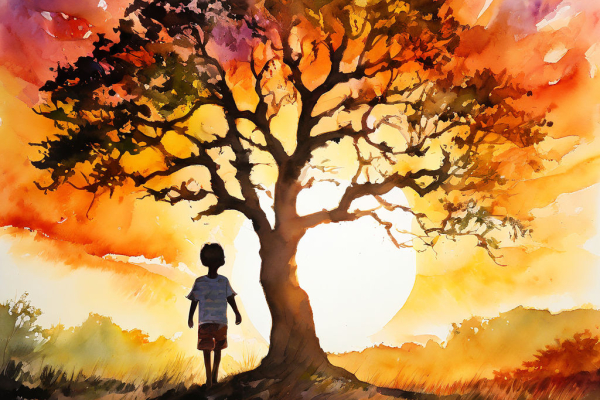- Europa
-
- Amstetten(7)
- Bad Schallerbach(1)
- Baden(4)
- Berg(1)
- Braunau am Inn(5)
- Bregenz(3)
- Bruck an der Mur(1)
- Graz(4)
- Hartberg(1)
- Innsbruck(5)
- Kemmelbach(1)
- Kitzbühel(4)
- Klagenfurt(5)
- Krems an der Donau(1)
- Kufstein(5)
- Leibnitz(1)
- Lienz(1)
- Liezen(1)
- Linz(5)
- Oetz(1)
- Punitz(1)
- Radstadt(1)
- Salzburg(5)
- St Polten(2)
- Steiermark(1)
- Steyr(1)
- Steyregg (1)
- Traun(3)
- Vienna(26)
- Villach(5)
- Völkermarkt(1)
- Wels(5)
- Wien(1)
- Wiener Neustadt(4)
-
- Aalst(1)
- Aarschot(2)
- Affligem(1)
- Anderlecht(5)
- Antwerp(11)
- Antwerpen(1)
- Arlon(6)
- Ath(2)
- Aubange(5)
- Bastogne (2)
- Blankenberge (1)
- Bruges(5)
- Brussels(15)
- Charleroi(5)
- Deinze(3)
- Dendermonde(1)
- Diest(2)
- Etterbeek(5)
- Geel(1)
- Genk(5)
- Gent(6)
- Geraardsbergen(1)
- Grimbergen (2)
- Hasselt(5)
- Heusden- Zolder(2)
- Ieper(1)
- Izegem(1)
- Knokke(4)
- Kortrijk(2)
- La Louviere(2)
- Leuven(5)
- Liege(4)
- Limburg(4)
- Lommel(1)
- Mortsel(1)
- Oostende(1)
- Turnhout(1)
-
- Chelyabinsk(1)
- Dubna(4)
- Gelendzhik(1)
- Irkutsk(1)
- Kaliningrad(1)
- Kazan(4)
- Krasnodar(3)
- Krasnoyarsk(1)
- Maykop(1)
- Moscow(50)
- Nizhny Novgorod(4)
- Novosibirsk(1)
- Omsk(1)
- Penza(1)
- Rostov-on-Don(2)
- Saint Petersburg(13)
- Samara(1)
- Saratov(1)
- Serpukhov (2)
- Sevastopol(3)
- Sochi(5)
- Stavropol(1)
- Surgut(1)
- Tyumen(2)
- Ufa(2)
- Vladivostok(3)
- Yekaterinburg (11)
-
- Alicante(8)
- Barcelona(113)
- Benalmadena(1)
- Benidorm(7)
- Castellón de la Plana(1)
- Denia(1)
- Estepona(1)
- Fuengirola (3)
- Ibiza(49)
- Jerez de la Frontera(1)
- Lanzarote(1)
- Las Palmas de Gran Canaria(5)
- Madrid(57)
- Malaga(9)
- Marbella(48)
- Murcia(1)
- Oviedo(1)
- Palma de Mallorca(48)
- Puerto Banus(3)
- Seville(1)
- Tarragona(1)
- Tenerife(7)
- Torrevieja(3)
- Valencia(9)
- Vigo(1)
- Zaragoza(1)
- Worldwide
Reconnecting with Your Inner Child: Tips from a Psychologist

Do you often deny yourself certain desires, thinking they are primitive or childish? How often have you recently felt an inner emptiness, as if nothing brings satisfaction anymore?
These feelings can arise because your inner child, whose desires you have regularly denied as senseless, gradually fades away, leaving a void in its place because "you need to be an adult and serious person."
The inner child is a psychological concept, a metaphorical representation of our childhood self. It describes the part of our psyche that retains childhood experiences, emotions, memories, and certain behavior patterns. This part of us is very sensitive and deserves attention.
When an adult has a harmonious connection with their inner child, they more frequently experience joyful moments. Such a person is full of life energy and has the desire to move forward. They can easily answer the questions "What do I want?" and "What brings me joy?"
For adults whose connection with their inner child is disrupted, these questions can be challenging. It becomes difficult to identify their desires, or they might not want anything at all.
Our childhood is a powerful resource where our true desires and needs, immense life energy, self-trust, imagination, the ability to achieve goals, and the courage to live are hidden. Unresolved childhood experiences can hinder a full life and cause suffering.
When we are in touch with our inner child, we can enjoy life more, add spontaneity, build trusting relationships, feel less anxiety, and have greater self-confidence. More and more, we hear that we need to "reconnect with our inner child, to heal it," but why?
Reconnecting with your inner child is essential for better tracking your needs and confidently asserting them, but from an adult's perspective. It also helps to clarify and respond to your desires more effectively.
Why are most children happier and more open?
Children don't analyze the world around them—they feel it. They don't question their desires; they simply do what they want. In fact, we adults can learn from children.
For instance, an adult passing by a playground might feel like swinging on the swings but dismisses the idea as silly and worries about what others will think. This is a simple example of how we neglect the desires of our inner child.
This part of us is responsible for our creative potential and sometimes helps us answer the question, "What do I love and enjoy?" As adults, it is our responsibility to hear what our inner child can offer and surround it with love, support, attention, and the feelings it might have lacked in childhood.
Practical Exercise:
Set aside some time and a place where you won't be disturbed. Take a piece of paper and write down 15 of your favorite activities (e.g., blowing bubbles, drawing, making beaded bracelets, playing board games, hide-and-seek, singing, dancing, cycling, modeling with clay, etc.).
Which of these activities did you enjoy in childhood? Which ones bring you joy as an adult? When was the last time you engaged in these favorite activities? Write down when you last did something you enjoyed and if it has been a long time, set 2-3 reminders throughout the day:
- What do I like?
- What can I do now that I enjoy?
- Do it!
Your inner child is always with you, waiting for your warmth and attention. Give it that, and you will see how your life changes. You will become more whole, confident, and joyful. Don't be afraid to be a child at heart—it is not only natural but also very beneficial. It’s like opening a new chapter in the book of your life, where every day is a new adventure.









